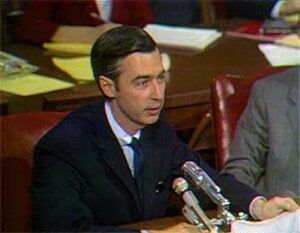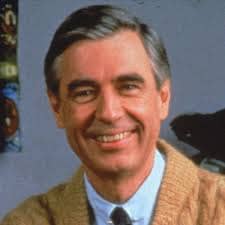There are times when I look at our world and I feel profoundly discouraged. There is so much pain, anguish, hate, and intolerance that I sometimes wonder if we can ever overcome these powerfully negative forces. I think about the tragedies in Charlottesville and Barcelona, while also recalling many others such as at the Pulse nightclub in Orlando or the ongoing suffering of those in Syria or North Korea. Perhaps you can understand, in light of all this, why I have been discouraged. I used to maintain a youthful belief that we truly have the opportunity to make the world happier and more peaceful if we tried. This has become immensely more challenging to believe as time goes by. I think about the neighborhood I live in and what I would want it to be like. In tragic times, those visions get overshadowed.
I carried these worries and concerns into my first attempt of writing this article. I had wanted to speak out against violence, hate, and bigotry from a position of love and hope. Despite all of my attempts, I couldn’t write. I tried, but I couldn’t find the words of hope because I honestly didn’t feel them. I felt lost and unfocused, hoping to hope but feeling despair instead.
 I don’t believe I am alone in my fear. As a psychologist, a major element of my work is to help people productively engage their fears in the therapy room. I can say without hesitation that I have never encountered such widespread angst, anger, anxiety, and hopelessness as I have in the current national and international climate. I face these dilemmas on a daily basis as clients wrestle with the various aspects of this complicated time in history, and I have felt increasingly helpless to do anything of note to alter the trajectory this world is on. In the midst of my profound discouragement in trying to compose this article, I was reminded me of something that has now become a deep source of inspiration for me. This source of inspiration I am referring to comes from a place you might not expect: Mr. Rogers Neighborhood, a TV show many of us grew up watching. A child’s show? Are you serious? What in the world does that have to do with cultural conflict, prejudice, or bigotry?
I don’t believe I am alone in my fear. As a psychologist, a major element of my work is to help people productively engage their fears in the therapy room. I can say without hesitation that I have never encountered such widespread angst, anger, anxiety, and hopelessness as I have in the current national and international climate. I face these dilemmas on a daily basis as clients wrestle with the various aspects of this complicated time in history, and I have felt increasingly helpless to do anything of note to alter the trajectory this world is on. In the midst of my profound discouragement in trying to compose this article, I was reminded me of something that has now become a deep source of inspiration for me. This source of inspiration I am referring to comes from a place you might not expect: Mr. Rogers Neighborhood, a TV show many of us grew up watching. A child’s show? Are you serious? What in the world does that have to do with cultural conflict, prejudice, or bigotry?
How is it that we are we now talking about Mr. Rogers? For context, in 1969 Fred Rogers spoke to the United States Congress about the merits of public television, hoping to secure funding for ongoing programming. I happened to see a portion of this testimony during a PBS commercial break several days ago, and was blown away by what I saw. In a stunning seven minute speech, Mr. Rogers eloquently and passionately described his concerns about the content, style, and messaging of TV programming at the time. He continued on to describe what he felt was a higher mission for those involved with public television and this is best captured in his following statement:
 “This is what I give. I give an expression of care every day to each child, to help him realize that he is unique. I end the program by saying, “You’ve made this day a special day, by just your being you. There’s no person in the whole world like you, and I like you, just the way you are.” And I feel that if we in public television can only make it clear that feelings are mentionable and manageable, we will have done a great service for mental health.”
“This is what I give. I give an expression of care every day to each child, to help him realize that he is unique. I end the program by saying, “You’ve made this day a special day, by just your being you. There’s no person in the whole world like you, and I like you, just the way you are.” And I feel that if we in public television can only make it clear that feelings are mentionable and manageable, we will have done a great service for mental health.”
I don’t know how else to describe this perspective other than to say it is pure genius. Upon rewatching the full testimony on YouTube (many times I’ll admit) I knew what I had to do. I had to reconnect with a part of my past that had long dimmed from view. I did some exploration and found the entirety of the Mr. Rogers Neighborhood series on a video streaming service. I then looked through the seasons until I found the ones that had aired in the late 1980’s, which would be around the age I would have watched the show. Then, as a grown 34 year old man with a wife and two small children, I sat down by myself in my basement and watched Mr. Rogers Neighborhood. I watched and I cried. I cried not because I felt despair, much as I had been feeling before. I cried because for the first time in almost a year, I knew without any doubt that there was still hope.
I rediscovered hope through the purity of Mr. Rogers’ demeanor, curiosity, and unconditional positive regard. His sincerity was unrivaled, and provided a powerful sense of belongingness and inclusiveness, even though a screen (and three decades) separated us. He didn’t know me, or anyone watching that episode that day. But he believed I was special. He believed anyone who watched (or didn’t watch) was special. Not because we were so smart or capable or passionate or worthy. But because we were who we were. He seemed to subscribe to the idea that illuminating this inherent value we all possess, and then offering both empowerment and affirmation of this personhood were key elements to “making it clear that feelings are both mentionable and manageable.” I was transported back in time to a less battered mental state, as I remembered the sense of optimism and joy Mr. Rogers instilled.
 In the episode, I watched Mr. Rogers talk about planting an orange seed and waiting for it to grow with patience, love, and care. He described how the seed starts very small, but would grow into a beautiful tree someday and perhaps grow good fruit to eat. He was honest that we would have to wait for a while, because good things don’t often grow quickly, but assured that the wait would be worth it. His words suggest he is talking about gardening. But I feel there is a larger metaphor in his choice to discuss a seed growing. I would have missed it as a child (at least consciously), but clearly some portion of his deeper message resonated both then and now. He seemed to be implying that the analogy of a seed growing created a lesson for life. A small seed without any grandness or importance can be planted, tended to, and nurtured into a growing tree that will continuously provide good things far beyond what’s its initially small size would have suggested. And he BELIEVED this to his core. He believed it so strongly, that he made me believe as well. He was right, because look at what his “seed planting” did for me all of these years later. I am a grown man lifted from the depths of despair because of the truth Mr. Rogers reminded me of and yet he had known all along.
In the episode, I watched Mr. Rogers talk about planting an orange seed and waiting for it to grow with patience, love, and care. He described how the seed starts very small, but would grow into a beautiful tree someday and perhaps grow good fruit to eat. He was honest that we would have to wait for a while, because good things don’t often grow quickly, but assured that the wait would be worth it. His words suggest he is talking about gardening. But I feel there is a larger metaphor in his choice to discuss a seed growing. I would have missed it as a child (at least consciously), but clearly some portion of his deeper message resonated both then and now. He seemed to be implying that the analogy of a seed growing created a lesson for life. A small seed without any grandness or importance can be planted, tended to, and nurtured into a growing tree that will continuously provide good things far beyond what’s its initially small size would have suggested. And he BELIEVED this to his core. He believed it so strongly, that he made me believe as well. He was right, because look at what his “seed planting” did for me all of these years later. I am a grown man lifted from the depths of despair because of the truth Mr. Rogers reminded me of and yet he had known all along.
Fred Rogers was on TV for decades, doing simple, low budget, thirty minute episodes for children with music, dialogue, and puppetry he himself created. He did thousands of these shows and each time he did, he planted a seed. He didn’t know if the seeds grew or not, but he planted them nonetheless. He saw the devastation that likely would have looked insurmountable in his day. There were wars, weapons, fears, intolerance and hate just like there are today. But he chose not to accept this direction as the endgame for humanity. He is known to have joined television primarily because he disliked how it was being utilized. He envisioned a way to use the medium to promote a larger, deeper good in culture and I would argue he has had unparalleled success in this regard. His method of using what you have and what you know to do something you care about has changed the world in arguably a permanent way.
My heart still hurts when I think about the tragedies that plague our world. I don’t ever want to “get comfortable” with the seemingly unavoidable violence that causes so much pain and suffering. I want and need to do something. Something that feels lasting and impactful over years. Mr. Rogers obviously created an initial belief that doing good was worthwhile and ultimately meaningful to your neighborhood. His legacy touched me as a youth, and has now reawakened a passion that has overridden my fears and insecurity about doing too little for a world that’s too broken. I will plant seeds. I will plant seeds of love, care, compassion, acceptance, empowerment, and encouragement every day of my life and wait patiently for them to grow. I will choose to believe these seeds might grow and look for new opportunities to plant more.
Thirty years ago, a seed was planted in me that at one time bore fruit, and thirty years after the day Mr. Rogers spoke the words, his truth now resonates with me more deeply than ever. I feel a resurgence of hope and resolve that cannot be extinguished. I know I cannot stop shootings or mass killings or other atrocities. But I know that what a forest fire destroys, planted seeds repair. So I invite you to plant with me in whatever way you can. Plant seeds using your gifts and talents and passions. Plant seeds of kindness and equality. Plant seeds of hope for peace and harmony. Plant seeds of inclusiveness and sincerity and love. Our efforts will be interfered with, and violence will destroy some of what we try to grow. Yet the beauty that could grow from what we could collectively plant is unlimited. Plant seeds with me and we will see what kind of neighborhood we can create.
Read Recent Posts From The Catalyst Center Clinicians:
[vc_row][vc_column][vc_basic_grid post_type=”post” max_items=”4″ element_width=”3″ grid_id=”vc_gid:1516664157487-70c30c29-a414-2″][/vc_column][/vc_row]



